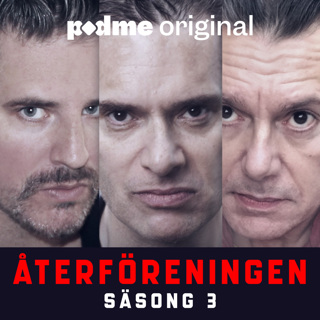
Princess Margaret And The War Hero
In October 1955, Britain was gripped by a romance between the young Princess Margaret and a glamorous, but divorced, ex-fighter pilot called Captain Peter Townsend. The couple had been in love for years, but after opposition from Buckingham Palace courtiers, the princess eventually announced that she would not go ahead with a marriage. Simon Watts talks to Lady Jane Rayne, a former lady-in-waiting to Princess Margaret and one of the first to spot the chemistry between the pair.PHOTO: Captain Townsend with Princess Margaret in the 1940s (Getty Images)
31 Okt 20188min

Life With America's Black Panthers
Eldridge Cleaver, one of the leaders of the radical African American Black Panther party, spent more than three years in exile in Algeria in the late 1960s. He set up an international office for the Black Panthers, mingling with dozens of left-wing revolutionary activists who had also sought refuge in north Africa. Mike Lanchin has been speaking to Elaine Klein Mokhtefi, a left-wing American woman who lived and worked in Algiers, and who became Cleaver's fixer and close confidante.Photo: Eldridge Cleaver and Elaine Mokhtefi (credit: Pete O'Neal)
30 Okt 20188min

The KGB's Whistleblower
Senior KGB archivist Vasili Mitrokhin risked his life smuggling thousands of top-secret Soviet intelligence files out of KGB headquarters, and bringing them to the West. His archive was one of the largest hauls of information to leak out of a major intelligence service anywhere in the world. Louise Hidalgo talks to Cambridge historian Professor Christopher Andrew, one of the few people let into Mitrokhin's secret who helped him turn his archive into a book.Picture: Vasili Mitrokhin, taken in March 1992 when he walked into the British embassy in Latvia and announced he had a big haul of KGB intelligence (Credit: Churchill Archives Centre, University of Cambridge)
29 Okt 20189min

The Day Nigeria Struck Oil
An eyewitness account of a discovery that changed Nigerian history. Chief Sunday Inengite was 19 years old when prospectors from the Shell D'Arcy oil company first came to his village of Oloibiri in the Niger Delta in search of crude oil. It was there in 1956, that commercial quantities of oil were first discovered more than 3km below ground. It marked the start of Nigeria's huge oil industry, but it came at a cost for villages in the Niger Delta. Alex Last spoke to Chief Sunday Inengite about his memories of those days and the impact oil had on his community.Photo: An oil worker watches over the drilling at of an oil well in Nigeria (Photo by © Hulton-Deutsch Collection/CORBIS/Corbis via Getty Images)
26 Okt 201811min

When Russia's Richest Man Was Jailed
When Russian tycoon Mikhail Khodorkovsky was jailed in 2003, it was the start of President Putin's crackdown on the oligarchs. He shares his memories of that time with Dina Newman. Photo: former head of Yukos Mikhail Khodorkovsky leaving the courtroom in Moscow, Russia, September 22, 2005. Credit: Sovfoto/UIG via Getty Images
25 Okt 20189min

The Arrest in London of Augusto Pinochet
The former Chilean dictator, Augusto Pinochet, was arrested in London in October 1998. Spanish lawyers wanted him extradited to Spain to face charges of torturing and murdering political opponents in Chile. He claimed immunity as a former head of state. He was held under house arrest in the UK for over a year. Lucy Williamson spoke to public relations expert Patrick Robertson about his efforts to get the General back home to Chile.Photo: General Pinochet in 1999. Credit: PA
23 Okt 20188min

Desmond Tutu Wins the Nobel Peace Prize
In October 1984, one of South Africa's most well-known human rights activists, Desmond Tutu, was awarded the Nobel Peace Prize for his opposition to apartheid. Two years later he became the first black head of the Anglican church in Southern Africa. Archbishop Tutu's friend and former deputy, Bishop Michael Nuttall, has been telling Louise Hidalgo about those milestones on the road to a new multi-racial South Africa, and about his friend's irrepressible spirit.Picture: Desmond Tutu in Washington addressing a US House Subcommittee hearing on apartheid shortly after he was awarded the Nobel Peace Prize. (Credit: David Tulls/AFP/Getty Images)
22 Okt 20189min

When Belgium Banned Coca-Cola
In 1999 Belgian teenagers started to become ill after drinking Coca-Cola. Many ended up in hospital and the government banned the sale of all Coca-Cola products. But the fizzy drink was given the all-clear so what was making the children sick? Claire Bowes has been speaking to Belgian toxicologist, Benoit Nemery, about a country in crisis.(Photo: A poster saying 'out of order' is stuck on a Coca Cola vending machine in Mouscron, Belgium in 1999. Credit: Philippe Huguen/AFP/Getty Images).
19 Okt 20189min






















